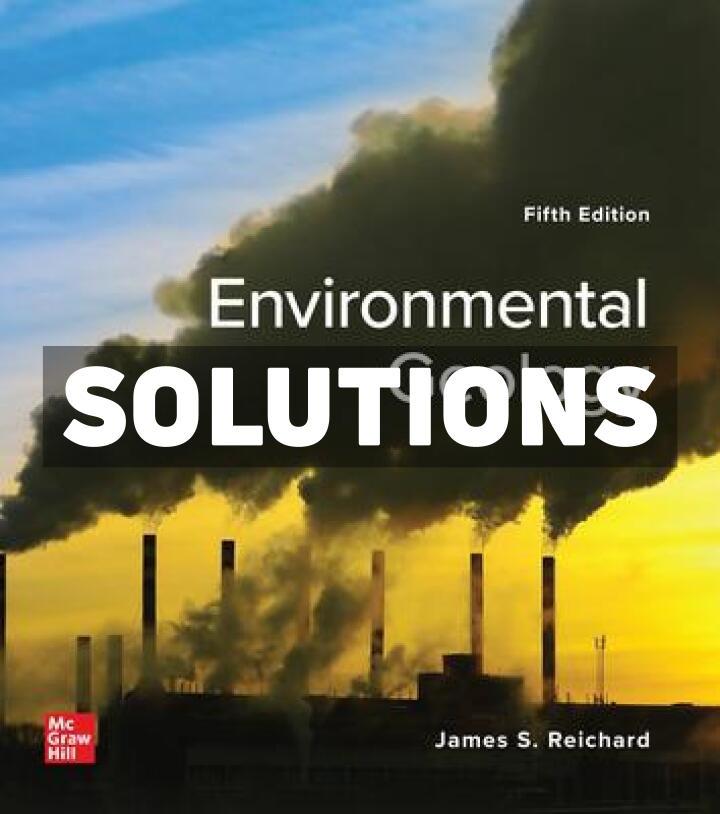

CHAPTER 1
HUMANS AND THE GEOLOGIC ENVIRONMENT
Chapter Outline
Introduction
What is Geology?
Scientific Inquiry
How Science Operates
Science and Society
Environmental Geology
Environmental Problems and Time Scales
Geologic Time
Environmental Risk and Human Reaction
Earth as a System
The Earth and Human Population
Population Growth
Limits to Growth
Sustainability
Ecological Footprint
Environmentalism
Box Readings:
Case Study 1.1: Harmful Algae Blooms and Humans Interacting with the Earth System
Case Study 1.2: Collapse of a Society and its Fragile Ecosystem
Student Learning Outcomes
1. Describe the major focus of the discipline called environmental geology.
2. Characterize how scientists develop hypotheses and theories as a means of understanding the natural world.
3. Describe the concept of geologic time and how the geologic time scale was constructed.
4. Explain how geologic time and the rate at which natural processes operate affect how humans respond to environmental issues.
5. Describe how Earth operates as a system and why humans are an integral part of the system.
6. Explain the concept of exponential population growth and how it relates to geologic hazards and resource depletion.
7. Define the concept of sustainability in terms of the living standard of developed nations and also in terms of the human impact on the biosphere.
Chapter Summary
This chapter introduces geology as the scientific study of the solid earth and environmental geology as the subset of geology that deals with the study of how humans interact with the geologic environment, especially with regard to geologic resources and hazards. To acquaint students with science and the process of scientific inquiry, the scientific method is described along with the terms hypothesis, scientific theory, and scientific law. The vastness of geologic time and the interconnectedness of Earth’s systems are emphasized as a basis for understanding how natural geologic processes and human-induced environmental change can have wide-spread implications for the many interconnected systems within the environment, on which we depend. Exponential population growth has exacerbated problems associated with geologic hazards and resource consumption as exponentially greater demands are placed on Earth’s limited resources and greater numbers of people will live in hazard zones. Humanity’s current ecological footprint is not sustainable. Population stabilization and conservation of resources are necessary for humans to live sustainably.
The first case study provides an example of how human modifications to the Earth system can lead to undesirable consequences for society. A second case study explores how Easter Island is often used as warning of what can happened to a society when its ecosystem collapses.
Student Activity
Look around your house/apartment/dorm room and make a list of five different materials that relate to geology. For example, do you have a granite countertop? Slate floor or pool table? Salt in your kitchen? Drywall (made from gypsum)? Metal objects? Plastic items (made from petroleum)? Indicate those items that can be recycled. If you currently do not recycle, describe what would cause you to start recycling.
Critical Thinking Questions
• Why do environmental scientists stress the importance of maintaining the health of Earth’s ecosystems? Why is this important to you personally?
Because healthy ecosystems are what provides us with the clean air and water that we humans depend on. We also depend on a clean environment to enjoy a wide variety of outdoor activities.
• How does our human perception of time differ from geologic time? Why is it important to understand the difference?
Humans tend to view time on a much finer scale than the scale over which geologic processes operate. To an individual person, decades or even hundreds of years may seem like a long time, but in terms of geology, it commonly takes millions of years for significant changes to take place. This is important because many environmental problems result from our failure to understand natural processes that operate over longer time scales.
• What is a sustainable society, and why is it important? How can you personally help?
Answers should include the need to maintain the Earth system so it can continue to support future generations. Students should recognize the need to limit population growth and to limit their personal consumption of resources.
Your Environment: YOU Decide
Describe whether or not you agree with the viewpoint that what happened to Easter Island’s ecosystem is a small-scale example of how humanity is affecting Earth’s global ecosystem. Provide one or more reasons to support your answer.
Answers will vary, but most students should see the parallel between Earth’s fragile ecosystem and limited resources and the need for humans to live in a sustainable manner.
